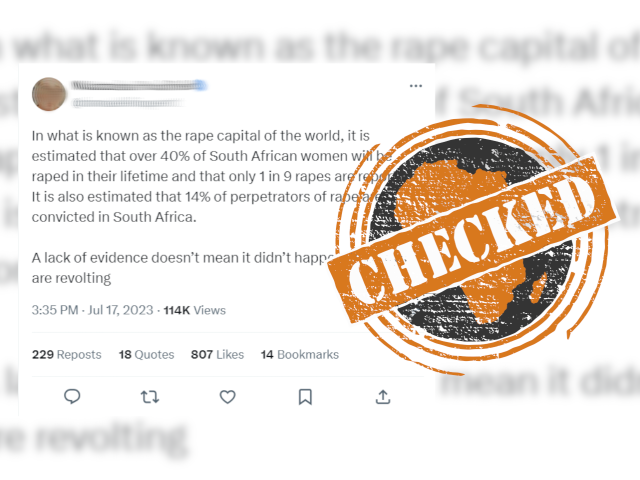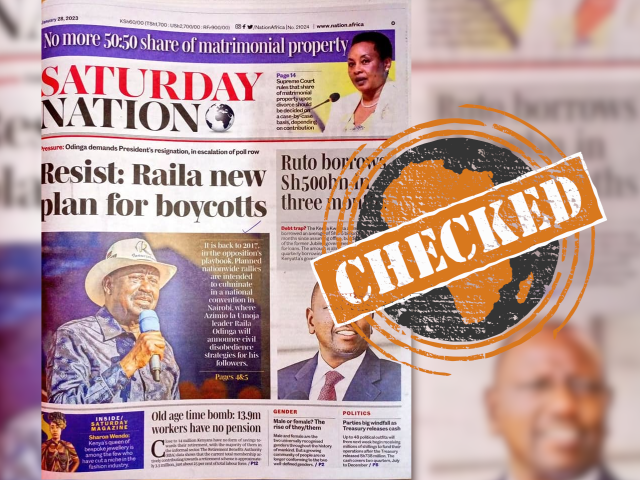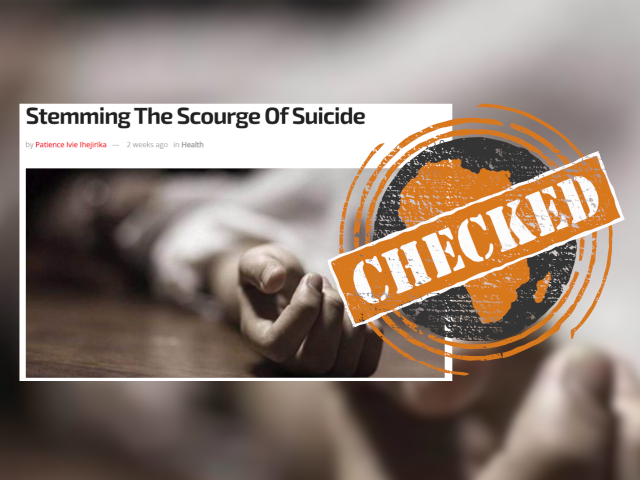Has the South African government “redistributed 9.4-million hectares of land” since 1994 as part of its land reform programme?
This was the claim made by President Jacob Zuma in a speech marking the release of the Presidency’s 20 Year Review of government performance.
But the statement contradicted Zuma’s State of the Nation address earlier this year in which he claimed that 4.2-million hectares of land had been transferred to black South Africans and an additional 80,000 land claims, involving around 3.4-million hectares of land, had been settled.
That adds up to a total of 7.6-million hectares, not 9.4-million. It is a difference of 1,800,000 hectares or 18,000 square kilometres, roughly the size of Gauteng province. A reader asked us to investigate.
'I don't know how that figure got there'
Bonnie Ramaila, a spokesperson for the Department of Performance Monitoring and Evaluation in the Presidency, initially told Africa Check that the figures cited by Zuma in both the State of the Nation address and the 20 Year Review speech had been provided by the Department of Rural Development and Land Reform.
Not so, said Rural Development’s deputy director for information management, Thembinkosi Jiyane. “I don’t know how [the 9.4-million figure] got there”.
Jiyane told Africa Check that between 1994 and December 2013, 4.2-million hectares of land was transferred through government’s redistribution programme; and 3.08-million hectares was subject to restitution. That is a total of 7.329-million hectares.
The Minister of Rural Development and Land Reform, Gugile Nkwinti, told the South African parliament in February last year that by January 2013 about 4.1-million hectares had been redistributed and about 1.4-million hectares had been dealt with as part of the restitution programme.
That's a total of 5.5-million hectares. Was a further 1,8-million hectares redistributed and dealt with by December 2013?
Contradictory figures
Pressed to explain the disparity between the numbers, Ramaila later said the 9.4-million figure had actually been sourced from the Department of Performance Monitoring’s rural progress reports, not directly from the Department of Rural Development.
And she suggested that the Department of Rural Development figures were outdated, claiming that the “7.3-million hectare mark was already surpassed by September 2012.”
We went back to Rural Development’s spokesperson, Linda Page, and asked her if Ramaila’s claim was true. Her response was blunt. “I am not saying anything. I do not have an opinion. That’s it. We have given you the figures that we know. Those are the figures that we have.”
She later sent a text message to Africa Check’s researcher saying she was attempting to verify the figures and establish if there were any “discrepancies”. That was on Wednesday. We are still waiting for a response and will update this report when, and if, we get it.
Conclusion: Worrying confusion shrouds land reform figures
Clearly Zuma contradicted himself, but more worrying is the confusion over the numbers in the Presidency and the Department of Rural Development. Have 9.4-million hectares of land been redistributed or 7.6-million? Neither appear to know for sure.
It took ten days for Rural Development to provide Africa Check with their figures. Given the critical importance of land reform in South Africa, it is the kind of information that should be accurate, up-to-date and at their fingertips.
Edited by Julian Rademeyer





Add new comment